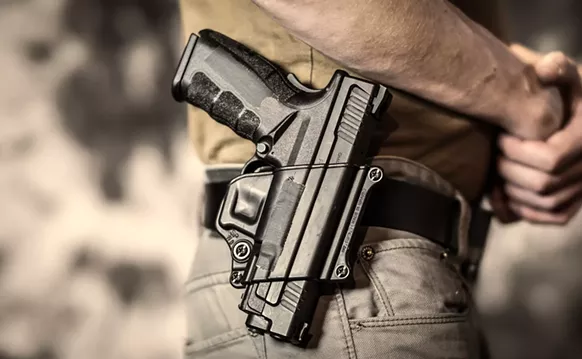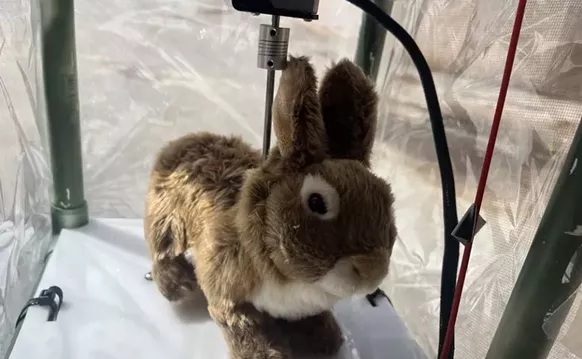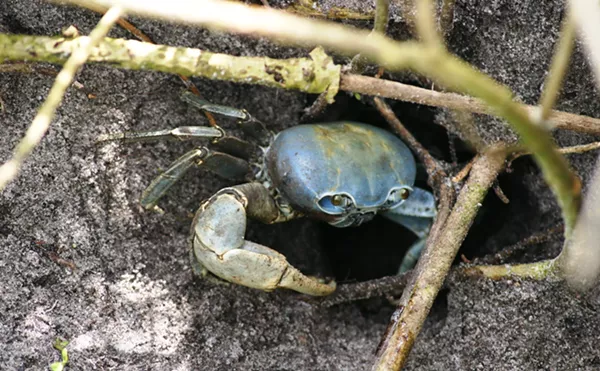Marlins owner Jeffrey Loria, who insists on making a vast fortune off the backs of the taxpayers?
Or Senate President Tom Lee, who withheld much-needed state subsidies that doomed the bid to put a new stadium in Miami?
How about Joe Arriola, the Miami city manager who became locked in a weird hate match with Marlins executives?
Could it be H. Wayne Huizenga, the billionaire sports mogul who bled the team dry in his classic civic vampire form?
Before you even try to answer, let me make it a lot easier. I just put Lee and Arriola in there as decoys, so you can throw them out. Lee, a Republican from the Tampa area, was acting as a good public steward when he withheld that handout. And Arriola... well, blaming it on Arriola is like blaming it on the alignment of the planets. Arriola happens.
So it's down to either Loria or Huizenga.
It's hard to put the blame on Loria's shoulders. He seems to be a pretty average Major League owner, in that he's a greedhead millionaire who wants to make a vast fortune off taxpayers. Loria's far from a hero, but he's not quite a villain either.
And so the answer is: Huizenga. Which is pretty ironic when you consider that H. gave birth to the Marlins 12 years ago. It goes to show that Huizenga giveth, and — if he doesn't maketh an obscene profit on it — he taketh away.
Since siring the team in 1993, he's been a horribly abusive father. Maybe we ought to call in DCF to save the Marlins. He hovers behind the scene like some invisible plague that can deliver a terrible wrath at any moment. Huizenga fever: We've already caught it.
Trying to figure out how much money he made from the Marlins before he sold the team in 1999 is hard to tell. But we can start with the $60 million subsidy — $2 million a year for 30 years — he's still getting from the state to renovate Dolphins Stadium for baseball. Ask his lobbyist, Ron Book, who engineered the giveaway, and he'll tell you that Huizenga has already sunk all of that money into the stadium.
"He spent substantially more than that," Book says. "Tens of millions of dollars more."
Maybe so, but it didn't all go for baseball renovations. In fact, the cost for baseball renovations was only $10 million, according to a state analysis. But Huizenga got the law changed to broaden how he could spend our money.
To this day, Huizenga — who has given millions of dollars to local and state politicians over the years — refuses to reveal what improvements he made. But he'll keep reaping the benefits of the subsidy long after the Marlins leave the stadium for good. And he'll be picking up that $2 million a year until 2023. How else can he afford his fleet of mansions along the New River?
But the subsidy wasn't enough corporate welfare for Huizenga. He whined and complained about losing all kinds of money while he was building the Marlins into a contender. After his team won the 1998 World Series, he claimed that the team lost a whopping $34 million, which seemed absurd. How can a team win a World Series and still lose money?
The answer was difficult to know because H. hid his finances from the public — even as he was demanding that the same public finance him a new ballpark. Noted sports economist Andrew Zimbalist looked at the evidence and discovered that Huizenga was playing a version of the old hidden-ball trick. The owner wasn't counting most of the stadium revenues, including luxury boxes and advertising. The team, it's true, wasn't collecting that profit. But Huizenga was, since he owned the stadium under another company. Zimbalist found that the Hizzy actually made $13 million.
But if Huizenga wanted to make chump change like that, he would have stayed in the garbage hauling business. Wayne's world was dependent upon the new stadium, which he wanted Broward County to finance. That would mean another, fresh, $60 million subsidy and, more important, double the price of the club and increased revenues across the board.
When it became clear that there was no public will to build him one, Huizenga threw a fit and dismantled the championship team, making a mockery of baseball.
You see, he's a football guy. He never cared about baseball, just the idea of increasing his sports empire. When he couldn't get it, he spit on the game and disgraced South Florida.
All in a day's work.
When he realized he wasn't going to make hundreds of millions owning the Marlins, he sold the team for $158 million. He'd paid $95 million for the club six years earlier, so he did OK.
And he wasn't finished profiting on the team. He still owned the stadium. You remember those $30 million or $40 million in stadium revenues he hid in 1998? Well he had new owner John Henry sign one of the worst lease deals in baseball history so he could still collect most of them.
Loria basically has that same terrible lease today.
"We get a little parking, little concessions, but very little," Marlins President David Samson told me.
He wouldn't tell me how much, but it's been estimated at $5 million, a paltry sum. Any way you cut it, the team is in a terrible place right now — the cold clutches of Huizenga.
The Marlins really do need a new stadium, and it made sense when they went to Miami to try to get one there. But guess what? Miami-Dade County couldn't get the much-needed tax subsidy from the state because Huizenga is still collecting that $60 million for the same team.
He's getting a $167,000 check this month from the state for a team he hasn't owned since 1999. And we can't stop that money from going to him. You know why? He rigged the system to make it legal.
Are you feeling this yet? It's a slow crawl, a creeping dread. It's Huizenga fever.
Now the conventional wisdom is to build a new baseball stadium near the Broward-Miami line on land next to Dolphins Stadium. Guess who owns it. C'mon, you know the answer.
Huizenga himself. It's the fever, baby.
It would be a huge mistake to build on that land, and not just because of the owner. The site is out west in sprawl-land without an urban core nearby. It's an event locale made for football, a destination for leisurely, tailgating Sunday drives. Baseball is played after work, when only the most ardent fans want to drive to the county line to see games on a regular basis.
Yes, a spanking new stadium will help to bring out bigger crowds, but once the novelty wears off, the franchise will be left with the same old low attendance numbers.
Samson insists it can be anywhere in South Florida. He's wrong. It's got to be tied to a downtown to really thrive. And with Miami kaput, Fort Lauderdale is the last great hope. It not only has a solid working population to draw from but it's also dead center of the 7.5 million people in the tricounty area.
The best possible site is Broward Boulevard and Interstate 95, which has been in the news — and in this space — quite a bit lately. It's where the county is planning an office compound that is rife with insider dealings and corruption.
The property has special I-95 exits that nobody currently uses, a Tri-Rail station, and a state-owned parking lot. The picturesque north fork of the New River runs through it, and as the gateway to Fort Lauderdale, it's a two-mile straight shot from downtown.
It's as close to perfect as you're ever going to get. But guess who messed up just about any chance that Broward will finance a baseball stadium?
You feel a cold sweat coming on?
It's Huizenga. He struck a sweetheart deal with Broward County in the late '90s to build a hockey palace for yet another of his teams at the time, the Florida Panthers. You know the place. I believe it's called the National Car Office BankAtlantic Depot Center. It cost $185 million and sits out on the edge of the Everglades where nobody really sees it these days but fans of bad hockey and Celine Dion.
That's right: We traded America's pastime for Canada's.
Huizenga talked the County Commission (John Rodstrom, take a bow) into funding the whole thing with hotel bed taxes. At the time, the county projected that it would reap profits from the place — somewhere between $1 million and $6 million a year. The only problem was that H. talked the commission into letting the Panthers pocket the first $14 million each year.
Guess what? The stadium has received more than $50 million in profits, and the county, which paid for the whole damned thing, has gotten a whopping $300,000-plus over six years.
So what does that mean? Well, the good old bed tax — which primarily burdens tourists — is tapped out. So the only way Broward could finance baseball is through a general-obligation bond that must be approved by the voters.
That's you.
So let's do the numbers. A 38,000-seat retractable stadium, all things included, would run at least $450 million, probably more.
Samson says the team was willing to put $30 million upfront for the busted Miami deal and pay rents to the county starting at $11 million annually for 38 years. That's enough to pay the debt service for $182 million worth of construction, according to Samson.
That same commitment would leave Broward with about $238 million to finance by itself. Using the same figures above, the tax burden would be something like $15 million a year.
Forget it, Loria. At that price, you can take your wannabe billionaire ass back to Montreal.
The only way voters will press "yes" for this thing is if they're equal partners in the stadium. The day a new stadium is completed, Loria is going to be at least $150 million richer. That's why $30 million upfront is chump change. He doles out $75 million at the start, minimum.
If the stadium's pulling in, say, $30 million in profits (which is a conservative estimate considering other parks), then the county should get an even split of that money until the debt is paid. That's $15 million for the county in rent, not $11 million. The stadium will likely pull in a minimum of $2 million a year for naming rights, probably more. The Marlins weren't giving any naming rights money to Miami. They will in Broward.
The public might be able to stomach a deal with such terms. But you can bet Loria will balk. He doesn't want to play fair — it's not the Major League way.
Baseball in Broward is undoubtedly a long shot, but we ought at least to cough up a sensible plan. Then let Loria turn it down and prove his greed. After all, we don't need another owner sucking us dry for his own outrageous personal fortune.
We already have Huizenga.












